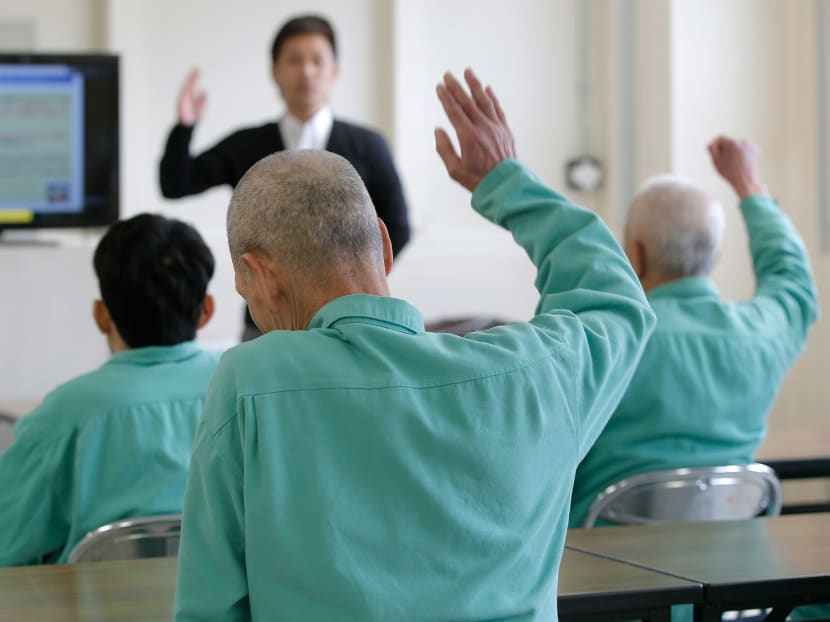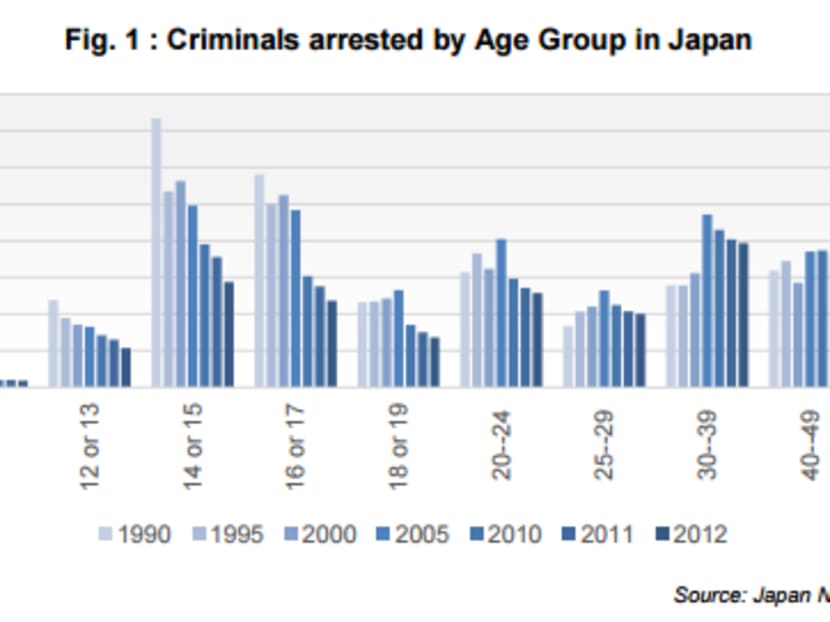Japan’s retirees turn to crime for a better life in prison
TOKYO — Japan’s prison system is being driven to budgetary crisis by demographics, a welfare shortfall and a new, pernicious breed of villain: The recidivist retiree. And the silver-haired crooks, say academics, are desperate to be behind bars.

Inmates listen to a lecture by Takeshi Izumaru, director at the Nagasaki Community Support Center at Sasebo Prison in Sasebo, Nagasaki Prefecture, Japan. Photo: Bloomberg
TOKYO — Japan’s prison system is being driven to budgetary crisis by demographics, a welfare shortfall and a new, pernicious breed of villain: The recidivist retiree. And the silver-haired crooks, say academics, are desperate to be behind bars.
Crime figures show about 35 per cent of shoplifting offences are committed by people over 60. Within that age bracket, 40 per cent of repeat offenders have committed the same crime more than six times.

There is good reason, concludes a report, to suspect the shoplifting crime wave, in particular, represents an attempt by those convicted to end up in prison — an institution with free food, accommodation and healthcare.
The mathematics of recidivism are gloomily compelling for the would-be convict. Even with a frugal diet and dirt-cheap accommodation, a single Japanese retiree with minimal savings has living costs more than 25 per cent higher than the meagre basic state pension of ¥780,000 (S$9,415) a year, according to a study on the economics of elderly crime by Mr Michael Newman of Tokyo-based research house Custom Products Research.
The surging rates of crime among the elderly disguise a darker trend than mere contempt for the law, say economists and criminologists. Retiree crime is rising more quickly than the general demographic ascent into old age that will put 40 per cent of the Japanese population over 65 by the year 2060. Mr Akio Doteuchi, a senior researcher on social development at the NLI Research Institute in Tokyo, expects the ratio of repeat offenders to continue rising.
“The social situation in Japan has forced the elderly into the need to commit crime,” he said.
“The ratio of people who receive public assistance is highest since the end of the war. About 40 per cent of the elderly live alone. It’s a vicious circle. They leave prison, they don’t have money or family so they turn immediately to crime.”
The crime figures, he adds, expose the strained calculus of the government’s welfare spending as the world’s second-biggest economy ages. Prison, no matter how the spreadsheets are run, is a woefully inefficient way for the government to target welfare spending at those who most need it.
Attempts to find ways to release elderly prisoners early have encountered insurmountable legal problems, says Mr Doteuchi, and the prison system as a whole will eventually be overrun by elderly inmates. FINANCIAL TIMES









